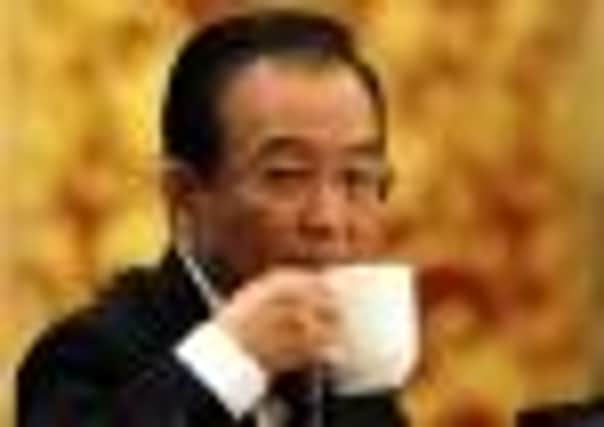Cultural Revolution could return, warns ‘Grandpa Wen’


In a three-hour news conference yesterday, his sole such event of the year, Mr Wen renewed a call for political reforms, particularly of the Communist Party leadership, saying that without them China’s hard-won prosperity might end.
The news conference was his last scheduled briefing before the 69-year-old steps down in a year after a decade in office as the party’s number three leader. He said he was “seized by a strong sense of responsibility” to speak out and referred repeatedly to the judgment of history. Corruption, the rich-poor gap and plummeting government credibility that beset China require institutional changes, he said.
Advertisement
Hide AdAdvertisement
Hide AdTo cap his plea, he made rare mention of the Cultural Revolution, ten years of factional battles and radical egalitarianism between 1966 and 1976 that spiralled into violence in which millions were persecuted and many reformist leaders were jailed, sent into internal exile or left to die.
“Without successful political reform, it is impossible for us to fully institute economic system reform. The gains we have made in this area may also be lost,” Mr Wen told reporters in the Great Hall of the People.
“New problems that have cropped up in China’s society will not be fundamentally resolved and such historical tragedies as the Cultural Revolution may happen again.”
The recurring references to the past and the wistful, reflective tone turned the premier’s news conference into something of a swan-song for the most popular member of the usually remote leadership.
Sometimes called “Grandpa Wen”, he comes across as warm and caring. He has been shown eating dumplings with coal miners and comforting survivors of the devastating Sichuan earthquake and other disasters.
Mr Wen, president Hu Jintao and most of the leadership are stepping down to obey unwritten rules of succession and make way for younger leaders. The turnover always invites divisive infighting that the party prefers to keep under wraps.
That image of unity was ruptured last month by the sacking of a top official in the mega-city of Chongqing, who fled to a US consulate, reportedly to seek political asylum. Asked about deputy mayor Wang Lijun’s fall, Mr Wen issued the harshest criticism to date of Chongqing party chief Bo Xilai, perhaps signalling the once-rising star is unlikely to be promoted to the uppermost ranks of power.
“The party committee and the government of Chongqing must seriously reflect on the Wang Lijun incident and learn lessons from this incident,” Mr Wen said. While not mentioning Mr Bo by name, Mr Wen recalled the diversions into political campaigns that side-tracked China’s climb from poverty to world power.
Advertisement
Hide AdAdvertisement
Hide AdThe comments seemed a swipe at Mr Bo, who has promoted mass sing-alongs of communist anthems and other “red” culture that some see as a worrying penchant for the past.
Mr Wen was characteristically humble as he looked back on his nine years as premier and 45 years in public service.
He said: “I should assume responsibility for the problems in China’s economy and society during my term in office, for which I feel truly sorry.”